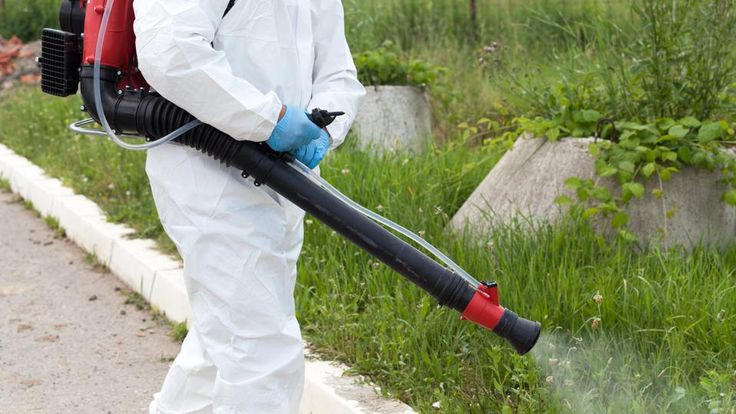Mosquitoes are not just annoying pests; they are also carriers of serious diseases like malaria, dengue fever, Zika virus, and West Nile virus. According to the World Health Organization, mosquitoes are responsible for millions of deaths every year, making them one of the deadliest animals on the planet. Controlling mosquito populations is essential to protect public health and improve the quality of life in mosquito-prone areas. There are two main approaches to mosquito control Virginia Beach: natural remedies and chemical solutions. Each method has its own set of advantages and disadvantages.
This blog explores both options to help you decide the best strategy for keeping mosquitoes at bay.
Understanding Mosquito Behavior and Lifecycle
Before diving into the remedies, it’s essential to understand a bit about mosquito behavior and lifecycle. Mosquitoes lay their eggs in stagnant water, and their life cycle from egg to adult takes about a week to ten days, depending on the temperature and environmental conditions. They are most active during dawn and dusk, seeking out warm-blooded hosts by detecting carbon dioxide, body heat, and other cues. Understanding these basics helps in designing effective control strategies.
Natural Remedies for Mosquito Control
Natural remedies for mosquito control have gained popularity in recent years due to their environmental benefits and perceived safety. Here are some of the most common natural methods:
Essential Oils and Plants: Certain essential oils, such as citronella, eucalyptus, lavender, and tea tree oil, are known to repel mosquitoes. These oils can be applied to the skin, added to diffusers, or used in candles. Similarly, planting mosquito-repelling plants like lemongrass, marigolds, and basil around the house or garden can deter mosquitoes.
Biological Control: This method involves using natural predators to control mosquito populations. Fish like guppies and goldfish, dragonflies, and certain birds are natural predators of mosquitoes and their larvae. Introducing these predators into ponds and other water bodies can help reduce mosquito breeding.
Removing Breeding Sites: One of the most effective natural methods is to eliminate standing water where mosquitoes lay eggs. Regularly emptying or treating bird baths, flower pots, gutters, and any other containers that collect water can significantly reduce mosquito breeding grounds.
Natural Larvicides: Products like Bacillus thuringiensis israelensis (Bti) are natural larvicides that target mosquito larvae without harming other wildlife. Bti is a bacterium that produces toxins that are lethal to mosquito larvae but safe for humans, pets, and other animals.
Mosquito Traps: Homemade mosquito traps using yeast, sugar, and water to produce carbon dioxide can attract and trap mosquitoes. These traps can be a useful addition to other mosquito control strategies.
Chemical Solutions for Mosquito Control
Chemical solutions for mosquito control are often seen as more aggressive and effective, especially in areas with severe mosquito problems. Here are some of the most common chemical methods:
Insecticides: Chemical insecticides such as pyrethroids and organophosphates are widely used to control adult mosquito populations. These chemicals can be applied as sprays or fogs in outdoor areas, especially during peak mosquito activity. Insecticides are highly effective at killing mosquitoes on contact, but they also pose risks to non-target species and can lead to resistance over time.
Larvicides: Chemical larvicides, such as methoprene and temephos, are used to kill mosquito larvae before they mature into adults. These chemicals are applied to water bodies where mosquitoes breed and are effective for several weeks. However, they can also impact other aquatic life and need to be used carefully.
Repellents: Chemical repellents containing DEET, picaridin, or IR3535 are commonly used on skin and clothing to prevent mosquito bites. These repellents are highly effective and provide long-lasting protection. However, they can cause skin irritation in some individuals and are not recommended for infants under two months old.
Mosquito Coils and Vaporizers: Mosquito coils and electric vaporizers containing allethrin or other chemicals release mosquito-repelling smoke or vapor. They are widely used in outdoor settings and provide temporary relief from mosquitoes. However, prolonged exposure to the smoke or vapor can have adverse health effects, particularly for individuals with respiratory conditions.
Comparing Natural Remedies and Chemical Solutions
When deciding between natural remedies and chemical solutions for mosquito control, it’s essential to consider the pros and cons of each approach.
Effectiveness
Chemical solutions are generally more effective at quickly reducing mosquito populations, especially in heavily infested areas. Insecticides and larvicides work immediately upon application and can cover large areas.
Natural remedies may take longer to show results and are generally more effective in preventing mosquito breeding rather than eliminating existing populations. However, they can be highly effective when combined with other control measures.
Environmental Impact
Natural remedies are environmentally friendly and pose little to no risk to non-target species, including humans, pets, and beneficial insects like bees. They are an excellent choice for individuals concerned about the environmental impact of chemical use.
Chemical solutions, particularly insecticides, can have a significant environmental impact. They can contaminate soil and water, harm non-target species, and contribute to insecticide resistance over time.
Safety
Natural remedies are generally safer for humans and pets. Essential oils, plants, and biological controls pose minimal health risks.
Chemical solutions can pose health risks, particularly if not used according to the manufacturer’s instructions. Insecticides can cause skin irritation, respiratory problems, and other health issues, especially with prolonged exposure. It’s best to consult a professional Hampton roads pest control services provider.
Making the Right Choice
Choosing between natural remedies and chemical solutions for mosquito control depends on your specific situation, including the severity of the mosquito problem, environmental concerns, and health considerations. In many cases, a combination of both approaches offers the best results. For example, you can use natural remedies like eliminating standing water and planting mosquito-repelling plants around your home while applying insecticides or repellents in high-risk areas.
Conclusion
Mosquito control is crucial for maintaining a safe and comfortable living environment, especially in areas prone to mosquito-borne diseases. Understanding the differences between natural remedies and chemical solutions allows you to make informed decisions about the best strategies for your home and family. By combining multiple approaches and staying vigilant, you can effectively manage mosquito populations and protect your health and well-being.








